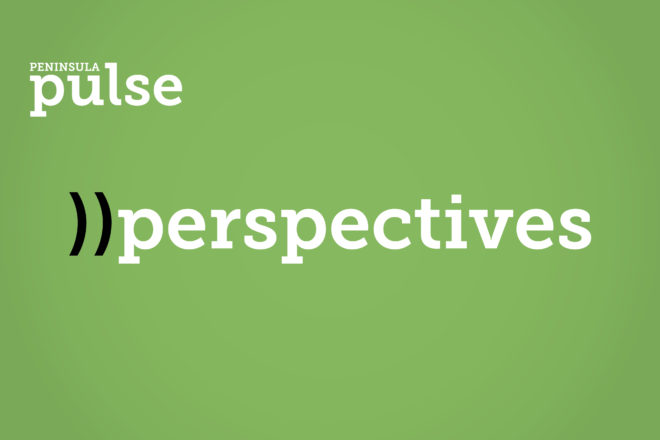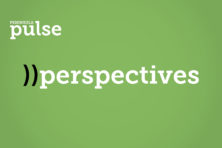Pulse of Philanthropy: Understanding Moral Hazard
- Share
- Tweet
- Pin
- Share

by BRET BICOY, President and CEO, Door County Community Foundation
If we feed a man who is hungry, we are removing his incentive to work. If we treat a sick patient who is uninsured, we are rewarding those who fail to plan for their future. If we offer free prenatal care to the young and unwed, we are enabling and encouraging teenage pregnancy.
I’m not exactly sure how we got here, but somehow the economic concept of moral hazard in business decisions and economic policy has found its way into how we treat each other as individual human beings.
It’s become all too common for us to cease seeing a person who is struggling as a brother or sister who needs our help, and instead decide to view such people coldly, as if they were a corporation that must endure pain and be taught a lesson because of their behavior. We decide that their struggles should be held up as a cautionary tale so that others won’t choose a similar path.
I’ve read almost two dozen articles that define “moral hazard,” and at their core, they all say essentially the same thing. At its most basic, economists explain that moral hazard results when one party makes a risky decision and is able to enjoy all the rewards if things turn out well, but another party will pay all the costs if things go badly. The “hazard” is that if there are no costs for risky decisions that turn out badly, then society is essentially encouraging and incentivizing people to take unreasonable risks.
Consider a big financial institution that’s making highly speculative investments. We implicitly agree that if the risk pays off, the institution should enjoy all the rewards because if its decision had proved to be foolish, it would be the one to lose money. But if taxpayers bail out this entity every time its decisions go badly, we are creating a moral hazard. We’re essentially encouraging corporations to take foolishly unreasonable risks because they never pay any price when they lose. When taken to the extreme, it actually becomes the smart business decision for a giant corporation to make ridiculously speculative investments because there is a potential for huge financial rewards without any commensurate worry about incurring any losses. It’s heads, they win; tails, we taxpayers lose.
That’s moral hazard. We shouldn’t bail out businesses that have made foolishly risky decisions because we don’t want to encourage reckless behavior.
Yet most individual people who are struggling haven’t made any risky, speculative decisions at all. Usually a man who is hungry was not participating in some high-risk behavior; he simply lost his job and is now struggling to make ends meet. The typical uninsured person isn’t gambling on speculative investments; she or he is holding a job that our society needs filled, but which doesn’t provide insurance. Most unwed mothers don’t try to get pregnant, but regardless, there’s an innocent baby who did nothing wrong and is now on the way.
Society is rightfully concerned about moral hazard because we don’t want to incentivize actions that most of us would consider foolishly risky and unreasonable. Yet when you are a low-income person living on the edge of the economic cliff, it doesn’t take risky behavior to cause you to fall to your doom. The ordinary stumbling blocks of life that we all encounter can have catastrophic consequences when your financial resources are limited.
Sadly, today’s divisive politics make it feel like everything we do is a political statement. The unfortunate effect is that a decision to help someone who is struggling is often seen through a political lens rather than a human one. Society is dehumanizing our relationships with strangers, so it’s becoming possible to simply look away while another is suffering.
Our politics has also aggrandized the implications of every action as if a singular act of helping an individual person will somehow encourage countless others to follow in their wake. Eventually our society ends up standing on some strange moralistic high ground that rationalizes the failure to ease another’s suffering.
I have no interest in making a political statement with any of my actions, and I have no delusions that any individual act I might make is so consequential that it will have some kind of dramatic, society-wide implication. All I know is what my late father taught me: When I see someone struggling, I should do what I reasonably can to help ease the pain. It really should be as simple as that.
Email Bret Bicoy at [email protected].



